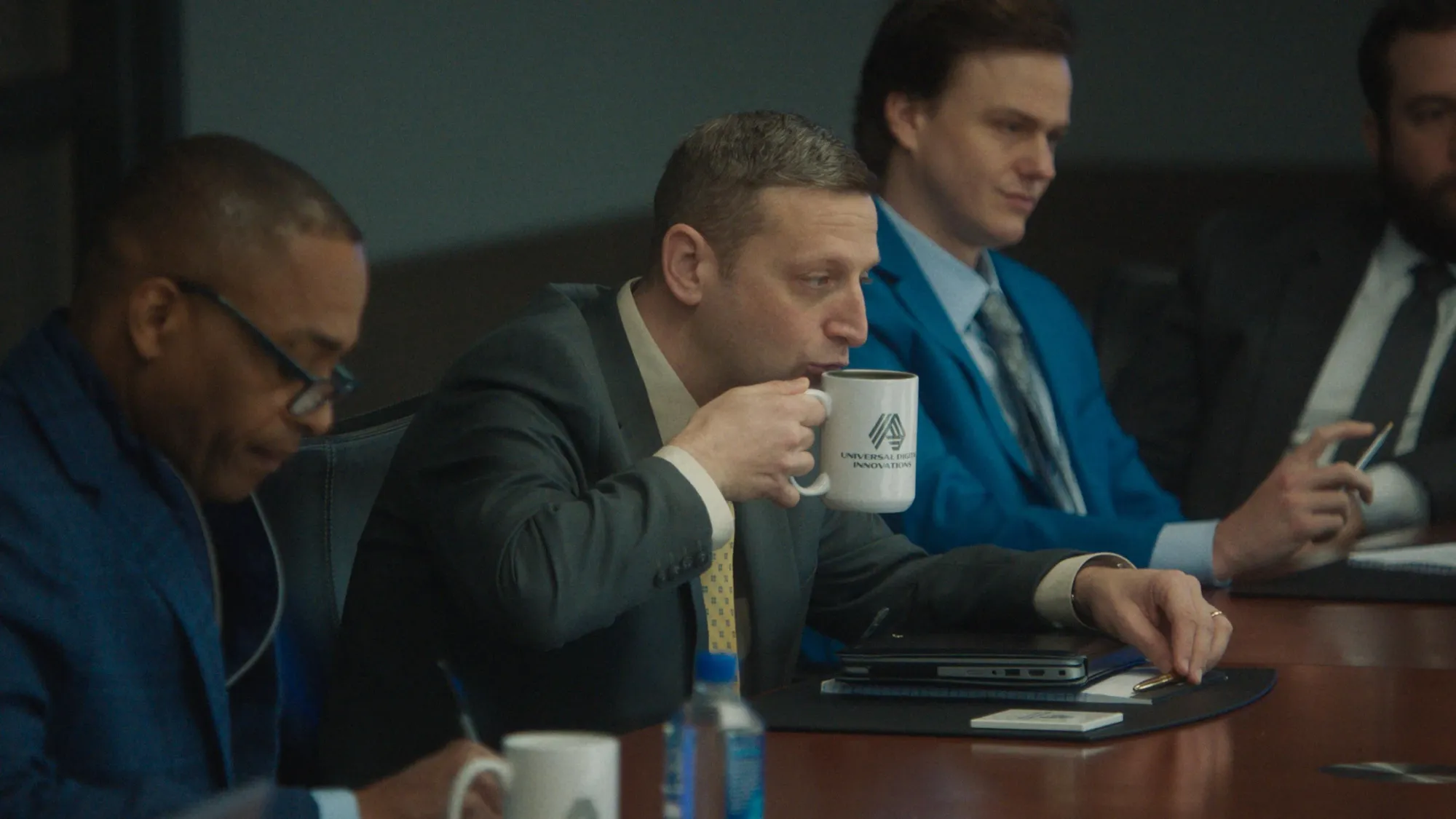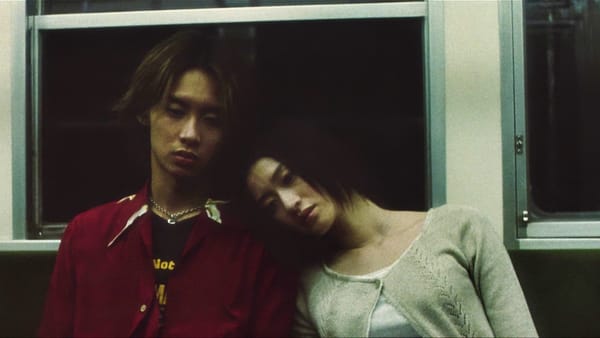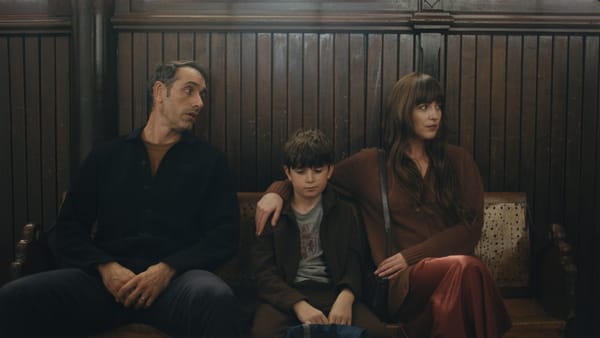'Friendship' Is a Cringe Comedy That Cuts Deep

Craig Waterman, the lead character in the new comedy Friendship, is extremely awkward, wildly insecure, and played by Tim Robinson as if he’s trying to suppress a panic attack that’s been running for 20 years. Watching Craig try to connect with other people for ninety minutes is excruciating. It’s also incredibly funny.
Writer-director Andrew DeYoung's Friendship is a wince-inducing cringe comedy in form, but it’s closer to a character study in practice. Robinson successfully stretches his brand of cringe humor from the small screen (Detroiters, I Think You Should Leave) to feature length in a role that only he could play. Craig isn’t just a one-note punchline, he’s emotionally volatile in a way that feels lived-in, not sketched. His need for connection is so intense it becomes hostile. He clings, he oversteps, he lashes out. And yet you never fully turn on him. You squirm, you laugh, you maybe even see some version of yourself in him. Robinson pulls off something tricky here: he plays the joke and the sadness behind it at the same time.
The film's premise is simple. Craig lives a lonely life in the suburbs. One day, a friendly new neighbor named Austin moves in. Austin is a local TV weatherman, played by Paul Rudd with the easy charm you expect and the quiet unease you maybe don’t. Craig sees Austin as a potential best friend. Austin sees Craig as a polite obligation. From there, the dynamic starts to twist.
Rudd could’ve easily coasted here as the nice guy who helps the weird guy feel seen. Instead, he finds the vulnerability, along with the humor, in Austin. He’s not Craig’s savior, and he’s not just there to be annoyed. His performance gets more surprising the more we learn about him. There’s a subtle arc in how he processes Craig’s attention, and it’s part of what keeps the movie from settling into a sketch show rhythm.

That’s the big surprise of Friendship: it holds together. What seems at first like a string of awkward sketches (Craig says something super weird in a group setting; Craig tries too hard to relate to his coworkers) builds into a coherent story with some real emotional weight. Craig’s wife, played by Kate Mara, doesn’t get a huge role, but her presence is important. She’s the one who shows us the long-term cost of Craig’s odd behavior. This isn’t just about one bad friendship. It’s about a pattern.
DeYoung’s direction is smart and unfussy. He knows when to hold a shot, when to cut away, and when to let a scene play out just long enough to hit a nerve. Friendship isn’t flashy, but it’s carefully tuned. It nails the tone, which is hard when the tone is mostly embarrassment and pain.
There are a dozen ways Friendship could’ve gone wrong. It could have leaned too far into absurdity. It could have made Craig into a pure villain or let him off too easily. But instead it threads the needle. It makes you laugh, flinch, and then wonder if you've ever alienated someone as badly as Craig often does. And maybe that’s the point.
Friendship is a deeply uncomfortable movie about the need to connect and the ways we sabotage ourselves trying to get there. It’s small, strange, and one of the funniest movies of the year. It might make you want to call someone you haven’t talked to in a while. Or delete your last few posts on Bluesky. Maybe both.





